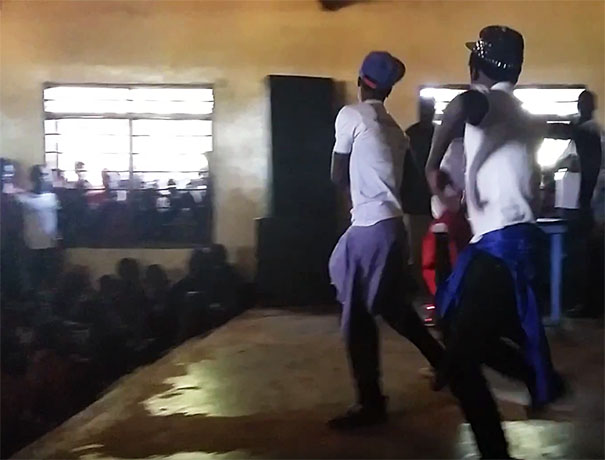
Youth participate in a talent competition in Tanzania’s Nduta Refugee Camp. Photo: Davide Prata / CWS
More than a year since Burundi’s current crisis began, more than 140,000 men, women and children remain in refugee camps in Tanzania, unable to return home. The spread of violence within Burundi, coupled with an economic collapse, mean that Burundian refugees in Tanzania will likely not be able to safely return home soon.
As the political situation continues to deteriorate, people remaining in Burundi are having an increasingly difficult time making a living or accessing services. The conflict is rapidly becoming a full scale humanitarian crisis with massive displacement inside and outside the country.
CWS and our ACT Alliance partner Tanganyika Christian Refugee Service are providing much-needed support to the Burundian refugees currently living in Nduta and Mtendeli refugee camps in western Tanzania. Our response focuses on water, sanitation and hygiene, non-food items and psychosocial support.
Since June 2015, we have procured and distributed cleaning materials, hygiene supplies, water tanks and jerry cans. We have also provided materials for “dignity kits,” which include supplies like underwear, sanitary pads, bathroom towels, flashlights and soap. We have constructed over 200 temporary latrines, bathing shelters, permanent latrines and garbage pits, drilled two productive borehole wells, installed hand washing facilities and promoted safe hygiene practices.
We provide daily counseling on a range of issues, including family life, marriage, life in the camp, domestic violence and alcoholism. We also provide training on preventing domestic violence. We engage refugees in community discussions and dialogues and organize reconciliation and peace building activities with host communities. Another part of our response involves managing community building events and involving over 700 children and young adults in games, sports, theatre and music groups.
Today I am at the youth center in Nduta refugee camp recording a short video with Beda Mwanakulya – Community Based Psychosocial Support and protection coordinator for our partner TCRS. It is a pleasure to listen to him describing all the activities we are doing here.
Nduta youth center is a busy place, which is reflected in the cacophony of sound emanating from it. Vibrant rhythms are coming from the more than 20 percussionists who are rehearsing for a show, the energy of which connects us with their homeland. Two teens are laughing while playing checkers under a tree, a family counselor is helping a recently married couple to cope with the new camp environment and many youths are chatting and sharing stories. There is a sense of normality in our youth center, a protective environment where people are able to express themselves without fear.
The scope of the ACT Alliance’s work in these Tanzanian camps keeps growing. We believe it is now the right time to support refugees as they build sustainable careers. The current crisis in Burundi is likely to continue for several years, and refugees should have the opportunity to become self-reliant.
While I listen to Beda, I already have new plans in mind: new activities to organize and new results to achieve. Refugees are great teachers. They know what they would like to have in the camps, the most pressing of which are livelihood opportunities and education.
CWS and our partner TCRS have recently developed a new ACT Alliance appeal to scale up our interventions in the refugee camps. We want to ensure that the time in the camps is a period of empowerment for the refugees. Our commitment and energy to work towards this goal is as great as the big task we are facing, and each one of us is proud to give its contribution.
Davide Prata is an Emergency Coordinator for CWS in Tanzania.
